The Ukraine Crisis One Year on
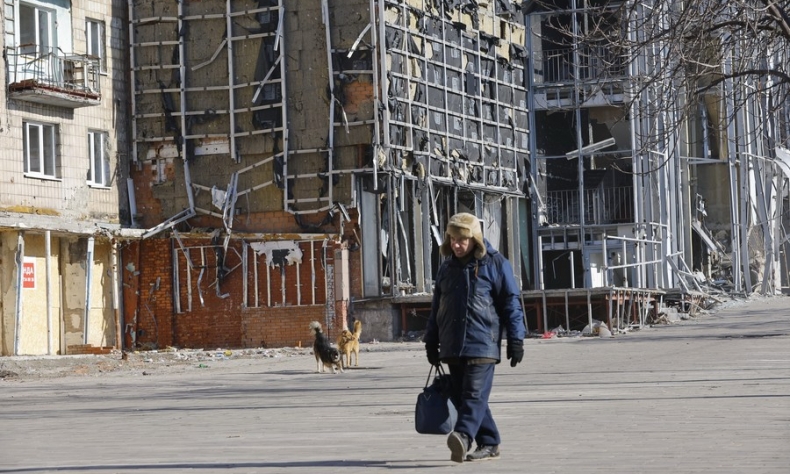
Though the world cannot reach consensus on what kind of international system it wants at the moment, last century’s scourge of war and the following four decades of estrangement should enlighten us that we all are part of a community with a shared future.
The devastation of American military intervention remains fresh and painful in Afghanistan, leaving many Afghans angry at the U.S. and NATO for their failures, and for the crushing economic and humanitarian disasters that followed the fall of the Western-backed government. Then came the Ukraine crisis, which has wrecked more havoc on regional and global security and development.
The world is witnessing the largest ground conflict in Europe since the end of World War II (WWII). The first anniversary of the Ukraine crisis comes while every party is mobilizing as much as they can for renewed fighting in the spring. The intensification of Western support for Ukraine, in particular, is provoking counterstrikes from Russia, leaving the world in a fluid and fast-moving situation. When will the war end? Will the Ukraine crisis extend into a large-scale long-term conflict? Will the situation escalate toward a third world war or even a nuclear war?
The ongoing crisis creates a long list of questions, most of which have no clear answer at the moment. Yet the following are becoming increasingly clear: Conflicts and wars produce no complete winner; there is no simple solution to a complex issue; “it takes two hands to clap,” and it would be too simplistic to make a quick judgment and put blame on one side. It is important to discard the binary approach and review the underlying cause for the Ukraine crisis with reason.
Key factors
George Kennan, former U.S. Ambassador to the Soviet Union, has been quoted in the international press as advising the U.S. administration in the 1990s that continued NATO expansion against Russia would be the most fatal mistake in U.S. policy. This kind of advice has also been given by many other well-regarded international experts. Former U.S. Congresswoman Tulsi Gabbard made it clear that the war between Russia and Ukraine could have been avoided if the U.S. had simply promised not to accept Ukraine as a member of NATO.
Regrettably, the U.S. Government has turned a deaf ear and continued to push forward the eastward expansion of NATO five times, moving its strategic border to Russia’s gateway. This expansion is directly connected to today’s Ukraine crisis.
NATO is a product of the Cold War, a political and military alliance of 30 North American and European countries. For about 40 years, NATO’s main objective was to counter the threat posed by the Soviet Union and its satellite states in Eastern Europe, which were united under the Warsaw Pact. But in 1989 the fall of the Berlin Wall represented the fall of the Iron Curtain that had divided Europe between the East and the West since the end of WWII. Two years later, the Soviet Union, which led the communist bloc, ceased to exist.
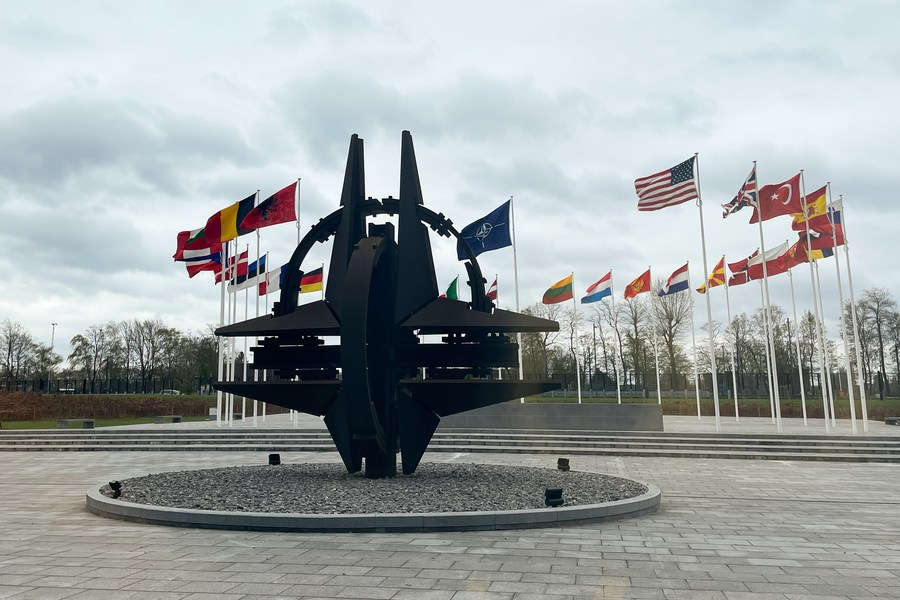
Military blocs are a Cold War vestige. With the disintegration of the Soviet Union and the end of the Cold War, NATO should have been consigned to history alongside the Warsaw Pact, or should have been adapted to reflect the changing circumstances. However, rather than breaking up, NATO has continued to strengthen and expand. The consequences of continuing down this path can easily be foreseen, and the crisis in Ukraine is a grave warning.
President Vladimir Putin ordered Russian troops into Ukraine in February last year, but made clear that his true target goes beyond Russia’s neighbor to America’s “empire of lies,” and threatened “consequences you have never faced in your history” for “anyone who tries to interfere with us.” Putin’s steadily mounting anger over the past two decades has been focused on the perceived Western humiliation of Russia after the dissolution of the Soviet Union, filling him with historical grievances and accusations of a relentless Western plot against his country.
After the Cold War, Russia had shown interest in joining NATO but the request was declined. The U.S.-led military alliance promised Russia that it would not expand but failed to keep its promise. NATO expansion has placed heavy pressure on Russia, as it has deployed weapons and missile defense systems in countries around Russia’s borders, which has undermined the nuclear strategic balance in Europe. Russia asked the U.S. and NATO for security guarantees, including not accepting Ukraine as a NATO member and limiting the deployment of troops and weapons on the alliance’s eastern flank, in effect returning NATO forces to where they were stationed in 1997. However, Western countries ignored Russia’s concerns and no changes were made.
“Russia has done everything to preserve the territorial integrity of Ukraine by fighting for the implementation of the 2015 Minsk agreements,” as Putin put it, but all of its efforts have ended in vain. The U.S. and other forces overtly agree to but covertly oppose the agreements, which were intended to manage the Ukraine crisis and avoid escalation, aiming to push Ukraine to join NATO or deploy military forces in the country. This has caused Russia’s tough reactions.
In addition to understanding recent decades, making better sense of the current crisis requires a good knowledge of the deeper history of the Russia-Ukraine relationship, which dates back to at least the ninth century. Russian history began in what then was called Kievan-Rus, a state that existed in what is now Ukraine and Belarus, and from where the spread of the Russian Orthodox Church began. Ukraine had been part of Russia for centuries, and their histories were intertwined even before then. Some of the most important battles for Russian freedom from the Swedish Empire, including the Battle of Poltava in 1709, were fought on Ukrainian soil. As former U.S. Secretary of State Henry Kissinger has reminded the West, Ukraine can never be just a foreign country to Russia.
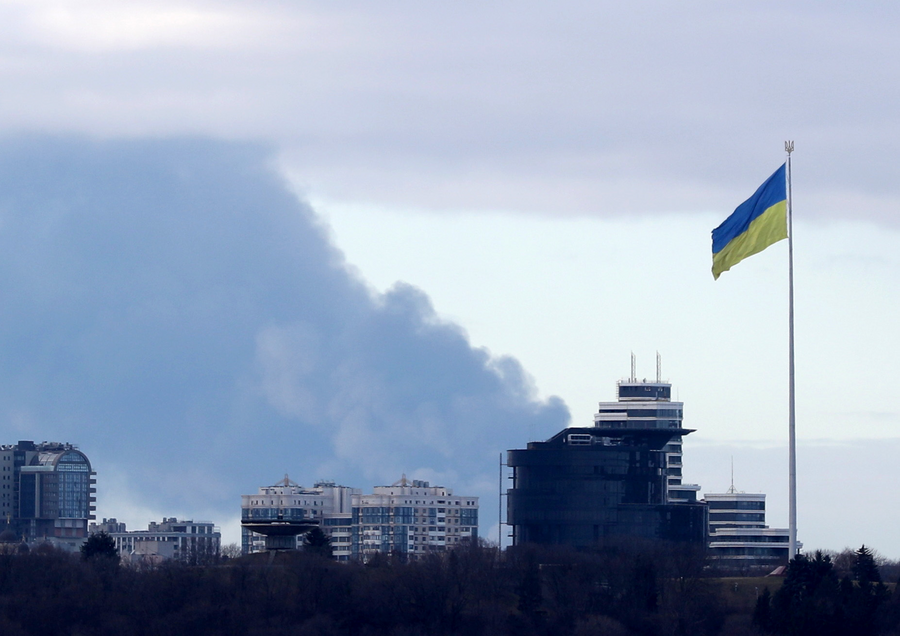
However, all sober reminders have been ignored. The following thread clearly illustrates the development of the Ukraine crisis: The U.S. made a cheap promise of NATO membership to Ukraine in order to trap it into confrontation with Russia, and is supplying it with hundreds of millions of dollars of military aid while shouting about preserving peace.
Henry Kissinger once said to be an enemy of America can be dangerous, but to be a friend is fatal. This has been proven right repeatedly by crises started by the U.S. around the world. The U.S. has taken Ukraine as a pawn on its geopolitical chess board, so as to contain Russia, suffocate Europe’s strategic independence, and shore up its collapsing hegemony in Europe.
Root cause
The root cause of the Ukraine crisis lies in the Cold War mentality and power politics, which are recipes for global instability. The irony is that the more expansive NATO becomes, the more insecure Europe is and will be. The pursuit of absolute security actually leads to absolute insecurity. Hyping security threats and stoking tensions undercut strategic mutual trust and elevate the risk of miscalculation. With Finland’s pending NATO membership, the alliance’s troops will be a stone’s throw from the Russian city of St. Petersburg. Russia has warned that such a move would end the “non-nuclear status of the Baltic Sea.” This could be a bluff, but who knows?
The reason for the chaos and conflict plaguing the world today lies in the fact that the purposes and principles of the UN Charter have not been truly observed. Interference in other countries’ internal affairs, in whatever name, disregards and defies the basic norms of international relations. If the legitimacy and effectiveness of the UN are jeopardized in the crisis, no matter which side prevails, the international community will face greater dangers and challenges in the long run. It is vital to let the common interest of the international community embodied in the purposes and principles of the UN Charter prevail over the selfish interests of a small number of countries.
Since the end of WWII, the U.S. has always proclaimed itself as a guardian of world peace. But the Ukraine crisis shows again that the U.S. is more of a guardian of its private interests as a country that worships America First. The U.S. does not want to be dragged into the conflict and bring harm to itself. It is therefore using a small country to do so on its behalf, while watching its own arms dealers, bankers and oil tycoons making a fortune out of the war, profiteering from the so-called offshore balancing strategy, leaving people of the small country bleeding.
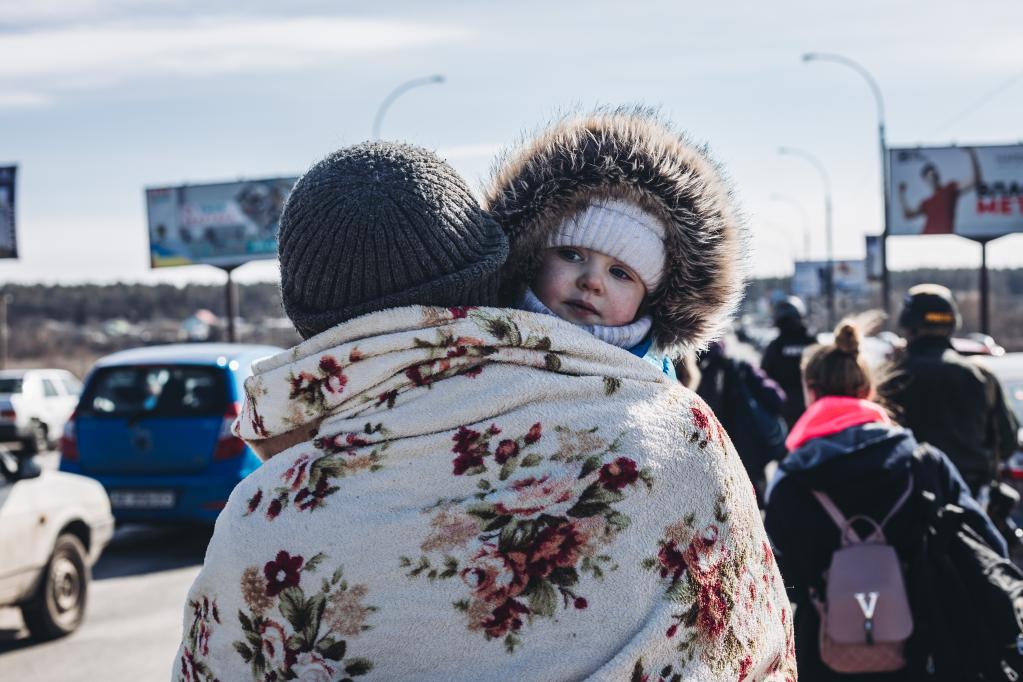
Since the start of the crisis, the West has relied upon two tools exclusively: condemnation and sanction, which shows the limited knowledge on peace-making, especially among countries with different values and political systems. The West has been working all-out to manipulate global public opinion. But many countries do not accept the black and white narrative and are not in favor of the good versus evil scenario presented by the West.
Unilateral sanctions have neither basis in international law nor the mandate of the UN Security Council. History has shown time and again that instead of solving problems, imposing sanctions is like putting out fire with firewood and will only make things worse. The U.S. has been coercing others into picking sides on sanctions, making a political solution harder and casting a shadow over world peace and stability. The world should not veer onto the wrong path of protectionism, decoupling and cutting chains. The attempts to politicize, weaponize and draw ideological lines in cooperation on trade, science and technology are dangerous and shall be rejected.
At the heart of the Ukraine crisis lie fundamental questions about the nature of history and the nature of humanity: Can humans change the way they behave? Will the old path of antagonism, division and confrontation be followed again? Can the voices for reason and reflection be heeded, or will the law of the jungle, bringing domination and oppression continue on endlessly, with humans forever condemned to reenact past tragedies without changing anything except the décor?
In contrast to these sanctions and bloc confrontation, Russia and its neighbors in the East have provided an alternative answer and demonstrated that different choices lead to different outcomes. After the Cold War, when Europe chose to use NATO’s eastward expansion to “preserve security,” China, Russia, Kazakhstan, Kyrgyzstan and Tajikistan, on the other side of the continent, initiated the Shanghai Five mechanism, in an unprecedented exploration of a new security philosophy and model. In 1996, when President Bill Clinton for the first time announced a timetable for NATO enlargement in Detroit, the U.S., the five countries signed the Treaty on Deepening Military Trust in Border Regions, resolving China’s boundary issues with former Soviet states once and for all and putting an end to military standoffs along its borders with them. The cornerstone of the Shanghai Cooperation Organization had thus been laid, and the Shanghai Spirit, i.e., mutual trust, mutual benefit, equality, consultation, respect for cultural diversity, and pursuit of common development, had been established. As such, neighborly friendship and common peace have prevailed among China, Russia and Central Asian countries.
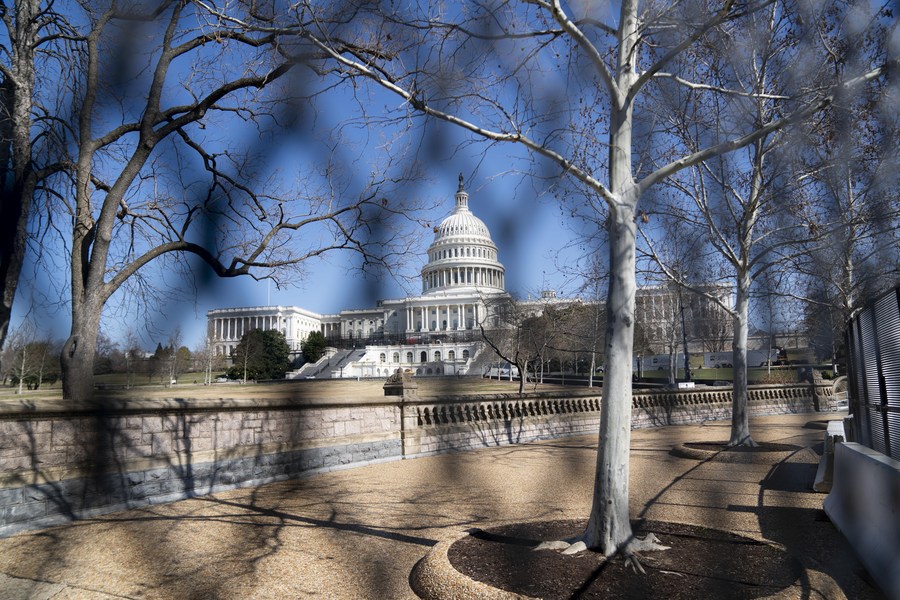
Right way forward
Global think tanks including the European Policy Center, the Royal Institute of International Affairs and Carnegie Europe recently published articles that shared their reflections on the Ukraine crisis.
Some articles pointed out, for example, that to end the war with reconciliation, diplomatic methods should be used. Managing relations with Russia, a neighbor of European countries, should be the primary challenge the EU must face squarely. When making the security rules for Europe, Europeans should play a central role and Russia cannot possibly be excluded. EU leaders should truly heed and seriously address Russia’s concerns and appeals. Others noted that to resolve the Ukraine issue, the security interests of all relevant countries should be attended to. To address the current crisis, both Russia and Ukraine should bear in mind the realities on the ground and attach importance to legitimate security concerns.
History proves that the principle of sovereignty is the cornerstone of the contemporary international order. Independence and territorial integrity of all countries are a basic principle in international relations. It is applicable to all countries and all situations, and there should be no exception, let alone double standards. Disagreements and frictions do exist between countries. Yet handling them with pressure, smear campaigns or unilateral sanctions is often counterproductive, and may even lead to escalating troubles.
The world does not need and cannot afford another cold war in the aftermath of the Ukraine crisis. Though the world cannot reach consensus on what kind of international system it wants at the moment, last century’s scourge of war and the following four decades of estrangement should enlighten us that we all are part of a community with a shared future. It is out of the question for any country or bloc to have absolute security while ignoring the security of other countries. Without respect, trust, mutual accommodation and cooperation, the world would never be peaceful.
The author is an op-ed contributor to Beijing Review and an expert on international studies.
 Facebook
Facebook
 Twitter
Twitter
 Linkedin
Linkedin
 Google +
Google +










